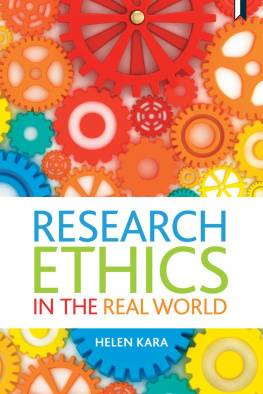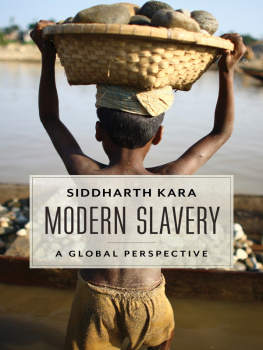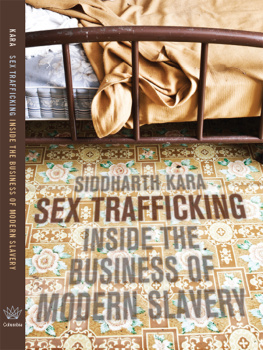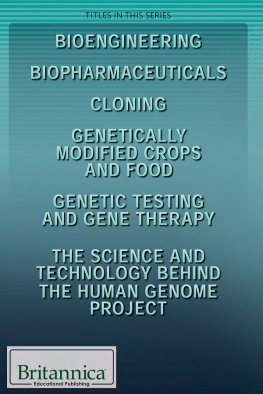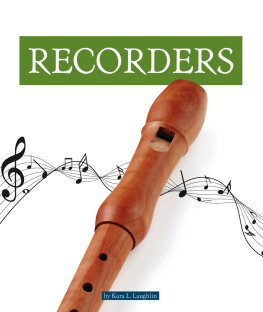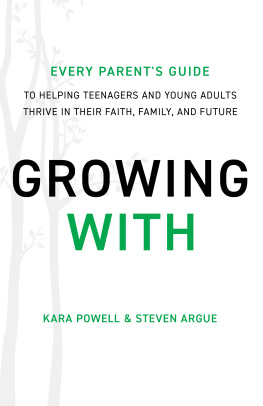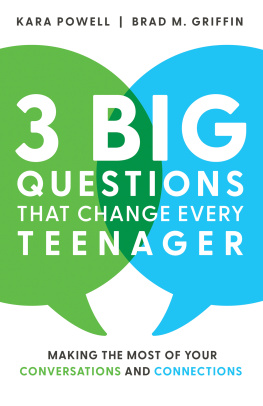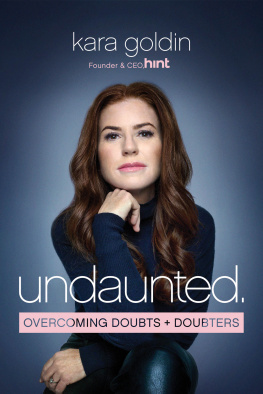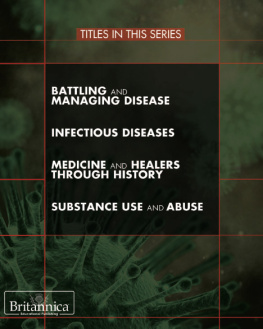First published in Great Britain in 2018
Policy Press University of Bristol 1-9 Old Park Hill Bristol BS2 8BB UK Tel +44 (0)117 954 5940 e-mail
North American office: Policy Press c/o The University of Chicago Press 1427 East 60th Street Chicago, IL 60637, USA t: +1 773 702 7700 f: +1 773-702-9756 e:
Helen Kara 2018
British Library Cataloguing in Publication Data
A catalogue record for this book is available from the British Library
Library of Congress Cataloging-in-Publication Data
A catalog record for this book has been requested
ISBN 978-1-4473-4474-2 hardcover
ISBN 978-1-4473-4475-9 paperback
ISBN 978-1-4473-4476-6 ePub
ISBN 978-1-4473-4477-3 Mobi
ISBN 978-1-4473-4478-0 epdf
The right of Helen Kara to be identified as author of this work has been asserted by her in accordance with the Copyright, Designs and Patents Act 1988.
All rights reserved: no part of this publication may be reproduced, stored in a retrieval system, or transmitted in any form or by any means, electronic, mechanical, photocopying, recording, or otherwise without the prior permission of Policy Press.
The statements and opinions contained within this publication are solely those of the author and not of the University of Bristol or Policy Press. The University of Bristol and Policy Press disclaim responsibility for any injury to persons or property resulting from any material published in this publication.
Policy Press works to counter discrimination on grounds of gender, race, disability, age and sexuality.
Cover design by Robin Hawes
Front cover image: istock
Readers Guide
This book has been optimised for PDA.
Tables may have been presented to accommodate this devices limitations.
Image presentation is limited by this devices limitations.
I dedicate this book to my sister Ros and my nephew Jamie, two of the most ethical people I know, who always inspire me to think and act more ethically.
I would like to thank:
Sandie Hope-Forrest who set my feet on this road with her inspiring ethics lectures when I was an MSc student at Staffordshire University in 1999.
Amanda Taylor and Katy Vigurs for initial encouragement without which I might never have got going on this book.
Les Back who gave me great encouragement at an early stage and sent me helpful literature.
Bagele Chilisa, Deborah McGregor and Helen Moewaka Barnes who put me straight about Indigenous research and inspired the direction of this book. Almost two years later, Deborah McGregor very kindly reviewed an almost-final manuscript and not only waived anonymity but also offered great encouragement along with invaluable suggestions for improvement. I am glad to be able to acknowledge her contributions in the text as well as here.
Sarah Banks, Michaela Benson, Mel Bartley, Jonathan ODonnell and Alistair Roy who provided much-needed encouragement along the way.
Petra Boynton, Martin Holmes, Mihaela Kelemen, Melissa Terras and Daniel Turner who gave practical assistance.
Bagele Chilisa for alerting me to Walter and Andersen (2016) Indigenous Statistics , which I might not otherwise have found.
Christine Soltero who kindly reached out through the magic of the internet and bought me a copy of Strega and Brown (2015) Research an Resistance: Revisiting Critical, Indigenous, and Anti-Oppressive Practices (2nd edn), which I couldnt afford and was very glad to have.
Roxanne Persaud for the sand drawings of Vanuatu.
Emma Uprichard for helpful comments on an early draft of Chapter 5.
Philomena Horsley for a very interesting and helpful conversation in Melbourne in December 2016.
All the people who agreed to be interviewed for this book, for sharing their knowledge and experience so generously.
Two sets of anonymous proposal reviewers and one set of anonymous manuscript reviewers who provided helpful suggestions and good food for thought. This is a much better book as a result of your input.
Ron Iphofen, the members of the UK and Ireland Social Research Association (SRA) ethics support group, Graham Farrant, and everyone who served on the SRA Board with me between 2012 and 2018, for helping to refine my ethical thinking.
The UKs National Centre for Research Methods for taking me on as a Visiting Fellow and for giving me writing space. In particular: Eva Nedbalova, Alex Frosch and Penny White for practical support and help; Ros Edwards for terrific mentoring in general and for pointing me to cognitive sociology in particular; and Rachel Ayrton for the case study, and for helpful comments on an earlier draft of Chapter 1.
I would like to thank my family and my friends for their love and encouragement.
My family: Mark and Julie Miller, Ros Round, Jamie Round, Pauline Ward, Clare Miller, David Miller, Vicki Miller, Harry, Fi, Emma and Jess Miller, Bob Denyer, Lauren Denyer, Marie-Claire Denyer, John McCormack, Sophie and Joe Denyer McCormack, Anne-Louise Denyer, Lowell Black and Aaron Stevenson.
My friends: Gilly and Dave Brownhill, Carol Burns, Zo Clarke, Su Connan, Anne and Mike Cummins, Nick Dixon, Leigh Forbes, Sue Guiney, Radhika Holmstrm, Hazel Larkin, Narelle Lemon, Sarah-May Matthews, Roxanne Persaud, Lucy Pickering, Janet Salmons, Wayne Thexton, Pat Thomson and Katy Vigurs.
Nik Holmes has made an immense contribution to this book despite only appreciating my writing if its funny (spoiler: not many laughs in this one) or lucrative (with each book hope wins over experience). Sorry, love and thanks.
This book has three main aims. The first is to set side by side the ethics of the Euro-Western research paradigm and the ethics, or axiology, of the Indigenous research paradigm. The second is to demonstrate that research ethics does not exist in isolation but is linked with other forms of ethics, such as individual, social, institutional, professional and political ethics. The third is to raise awareness of the need for good ethical research practice at all stages of the research process.
The intention of the first aim is not to compare the two paradigms with a view to concluding that one is better than the other. Nor is it to suggest that Indigenous research needs to be compared with Euro-Western research, or to attempt to integrate the two paradigms. The Indigenous paradigm is mature and fully formed; it stands alone. Also, while there are some similarities of method and ethics, the paradigms are based on fundamentally different types of knowledge (Kovach, 2009: 31). Research ethics is not a single or a universal approach in either paradigm, but a diverse collection of theories and practices (Ball and Janyst, 2008: 48). Indeed, research practice that may be ethical in one context, such as academia, may be harmful in another, such as a specific community (Brunger and Wall, 2016: 1865).
Yet it is worth learning about, and reflecting on, other ways of being with research than our own. Learning about other peoples approaches to research and ethics can be limited by language and translation problems but, even so, I argue that this can expand researchers options and improve our ethical practice. The benefit of drawing on both paradigms is recognised by some Indigenous researchers (Kovach, 2009: 13; Chilisa, 2012: 7; Okalik, 2013: 243; Wehipeihana et al, 2013: 283; Lambert, 2014: 8). Elder Albert Marshall, of the Mikmaw Nation, has named this Two-Eyed Seeing (see this books companion website: http://policypress.co.uk/resources/kara-ethics). It encourages that we learn to see from one eye with the best in the Indigenous ways of knowing, and from the other eye with the best in the Western (or mainstream) ways of knowing ... and, moreover, that we learn to use both these eyes together, for the benefit of all (Bartlett et al, 2015: 283). While I am primarily writing for Euro-Western readers, I hope my work will enable researchers working in either paradigm to reflect on their ethical stance in the light of a wider range of ethical perspectives than they might otherwise consider.


